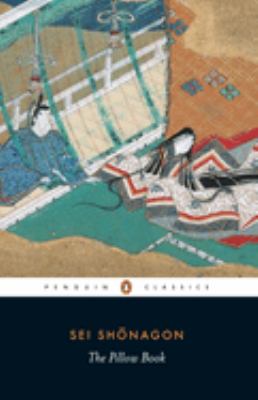I’m back in Singapore! ILGA and the Scandinavian winter were amazing,
consciousness-expanding experiences – I’ve written about some bits of ‘em on
the ILGA Blog, and I might upload my e-mails to my folks to my personal site,
The Paradise of Flowers and Fruit. Doing this project turned out to be pretty useful for socialising too - if I met a guy from Samoa, why, I could just mention that I'd read Albert Wendt and we'd have something to talk about straight off.
As for The Pillow Book, oh my: it took me all
holiday to read. Surprising, considering how lightweight it is as a text, but
Kindle for Mac had me clicking the screen all the time for the endnotes – it’s
not a conducive medium to skimming at all.
But it was rather nice, absorbing these Japanese aesthetics of nature and seasonal change while trundling through the snow-covered mountainscapes of Norway. As much as Sei delights (this is a word used often) in the floral colours of court dress, she’s also in love with the images of winter: the snow on a gentleman visitor’s cloak, a lady holding a lighted coal to a letter to read it in the darkness.
Much has been made of the lists in this book – refined and elegant things, things that make your heart beat fast, things that make you nostalgic – but as translator/annotator Meredith McKinney notes, the literary form was quite established by 994, when Sei received the gift of paper which formed The Pillow Book. In fact, she deviates from standard lists, distracted by personal memories and commentaries.
And so much of this text is made of memories: little episodes in court that show off the pageantry of Emperor Ichijo and Empress Teishi, that are evidence of her wit as she bests the male courtiers in their games of quoting the Chinese classics – though a refined woman was not supposed to be able to read Chinese; thus her exhibitionism was necessarily veiled by sly self-effacement.
And what a strange world for women this was: where it was proper for court ladies to remain behind screens when addressing men, yet extra-marital affairs were not frowned upon. (A disproportionate number of these East Asian texts I’m reading are by women; have you noticed?)
Of course the whole work’s made more poignant because you know this gilded world was not to persist: Teishi fell from favour and died two days after childbirth, after which Sei left the court and by tradition died an impoverished crone; a couple of centuries later and the empire was transformed into the wartorn battlefield of The Tale of the Heike.
But for a while, this beauty, this perfection. And how grand that these moments of delight were captured well enough to remain on the shelf of world literature, perennial amidst the changing seasons.
View Around the World in 80 Books!!! in a larger map
Representative quote:
[71] Rare things – a son-in-law who’s praised by his wife’s father. Likewise, a wife
who’s loved by her mother-in-law.
A pair of silver tweezers that can actually pull out hairs
properly.
A retainer who doesn’t speak ill of his master.
A person who’s without a single quirk. Someone who’s
superior in both appearance and character, who’s remained utterly blameless
throughout his long dealings with the world.
You never find an instance of two people living together who
continue to be overawed by each other’s excellence and always treat each other
with scrupulous care and respect, so such a relationship is obviously a great
rarity.
Copying out a tale or a volume of poems without smearing any
ink from the book you’re copying from. If you’re copying it from some beautiful
bound book, you try to take immense care, but somehow you always get ink on it.
Two women, let alone a man and a woman, who vow themselves
to each other forever, and actually manage to remain on good terms to the end.
Next book: Chun Yu Wang's Chicken Feathers and Garlic Skin: Diary of Chinese Garment Factory Girl on Saipan, from the Marianas.

No comments:
Post a Comment